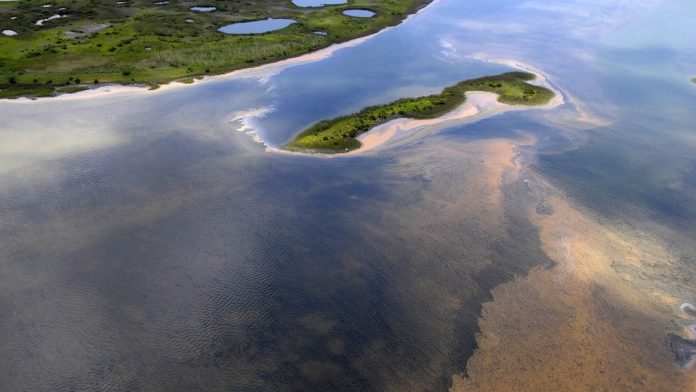Louisiana scrapped a $3 billion coastline restoration effort for a vanishing Gulf coastline on Thursday, July 17. The plan had been financed by the 2010 Deepwater Horizon Oil Spill. While conservationists asserted it was a vital plan to combat climate change, Louisiana Gov. Jeff Landry, a Republican, called it a threat to residents’ livelihoods and argued it was too expensive.
State may have to repay $618M
The project at the heart of the state’s coastal protection plan, which relied on years of research and environmental reviews, was in doubt after Landry became governor in 2024. Its cancellation means Louisiana could miss out on more than $1.5 billion and may have to repay the $618 million already spent on the effort.
The coalition of federal agencies managing the funds known as the Louisiana Trustee Implementation Group stated that “unused project funds will be available for future Deepwater Horizon restoration activities,” but they would still need an evaluation and approval.
The project’s aim
Known as the Mid-Barataria Sediment Diversion Project, the plan sought to rebuild roughly 20 square miles of land over a half century in the southeast part of the state to manage rising sea levels and erosion along the Gulf Coast. However, lawsuits halted the construction process in 2024. Project managers warned that Louisiana would have to repay hundreds of millions of dollars it already used if the project was stopped.
Former rep. calls it a ‘boneheaded decision’
Former Republican Rep. Garret Graves, who previously served as the head of the state’s coastal restoration agency, called cancelling the project a “boneheaded decision” that failed to take into account years of studies.
“It is going to result in one of the largest setbacks for our coast and the protection of our communities in decades,” Graves said. “I don’t know what chiropractor or palm reader they got advice from on this, but baffling that someone thought it was a good idea.”
Supporters of the restoration project emphasized that the effort was rooted in research and would have protected the coastline from the worst impacts of erosion in a state where a football field of land is reportedly lost every 100 minutes, and more than 2,000 square miles has been lost over the last 100 years, as noted by the U.S. Geological Survey.
The project that began in 2023 aimed to reroute sediment-filled water from the Mississippi River to rebuild wetlands eroding because of rising sea levels from climate change, as well as an expansive river levee network that deprived the area of natural land revitalization from silt deposits.
A changing landscape in more ways than one
“The science hasn’t changed, nor has the need for urgent action,” Kim Reyher, executive director of the Coalition to Restore Coastal Louisiana, said. “What has changed is the political landscape.”
Trustees said in 2024 that “no other single restoration project has been planned and studied as extensively over the past decades.”
Landry’s concerns
Landry argued in a statement that the effort is “no longer financially or practically viable,” and said the price tag has doubled since nearly a decade ago.
“This level of spending is unsustainable,” Landry said. He said the plan “threatens Louisiana’s seafood industry, our coastal culture, and the livelihoods of our fishermen — people who have sustained our state for generations.”
The restoration plan had allocated more than $400 million to offset the potential costs to locals, including assistance for oyster businesses in building new oyster beds. Advocates for the project contend that with the swift rate at which land is being lost, local industries will be forced out of business if nothing is done.

